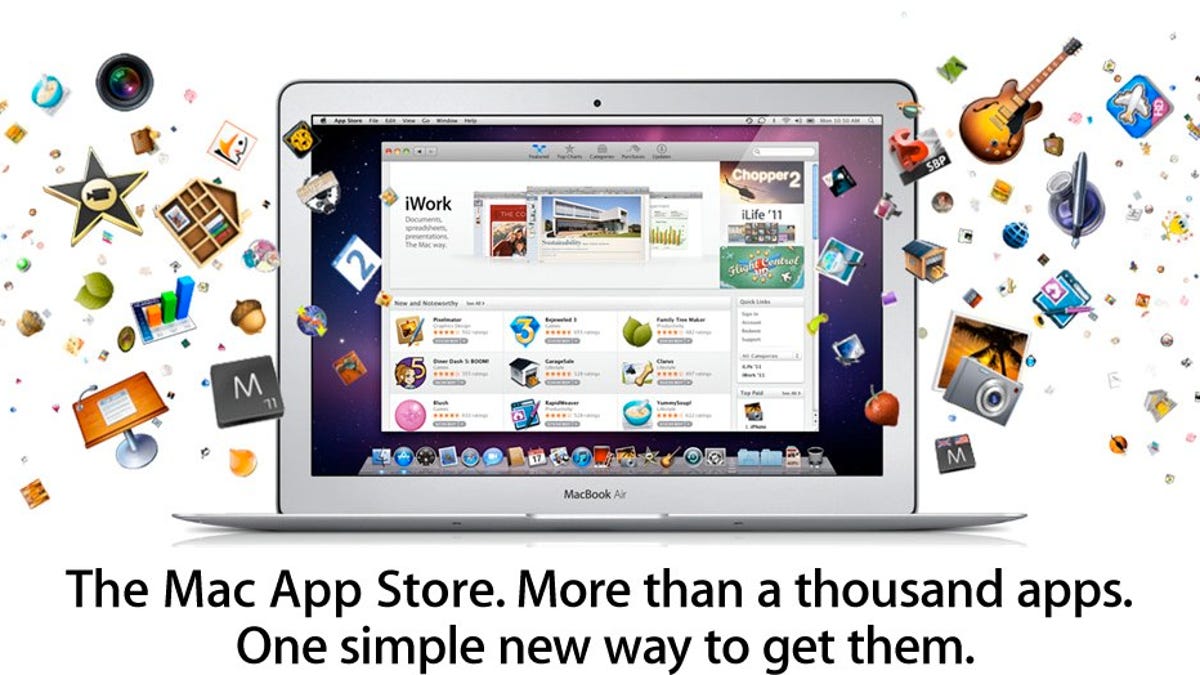Mac App Store launches on Snow Leopard
It's available for now only to Mac OS X 10.6 Snow Leopard users, through the 10.6.6 software update. It will be made available in Mac OS X 10.7 Lion later this year.

The Mac App Store is officially open.
According to Apple, the marketplace is launching with over 1,000 paid and free apps in categories ranging from games to productivity. As with the company's mobile store available on the iPad and iPhone, users can search for apps, find out "what's hot," check out staff favorites, and see the most-downloaded programs in different categories.
Apple itself is selling iPhoto, iMovie, and GarageBand for $14.99 each. Its Pages, Keynote, and Numbers apps are available for $19.99 in the store. It's also selling Aperture 3, its photo-editing software, for $79.99.
"With more than 1,000 apps, the Mac App Store is off to a great start," Apple CEO Steve Jobs said in a statement. "We think users are going to love this innovative new way to discover and buy their favorite apps."
But it's important to note that the Mac App Store won't be offered to every Mac owner. The store is available only to Mac OS X 10.6 Snow Leopard users through the free 10.6.6 software update. It will also be made available in Mac OS X 10.7 Lion when it launches later this year.
On the development side, Apple is keeping the same revenue-sharing policy it has in place for its mobile app store. Developers selling paid apps will keep 70 percent of the revenue generated from sales, while Apple will take the remaining 30 percent. Developers offering free apps won't be charged anything to make their programs available in the Mac marketplace.

